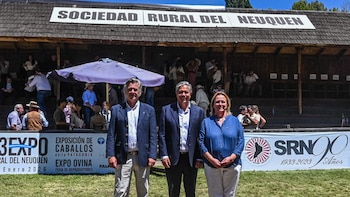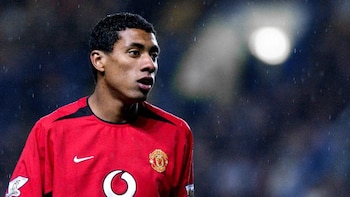
Mike Moran, communications chief for the United States Olympic Committee during the 1984 Games, recalls the behind-the-scenes actions that saved the Olympics from extinction.
A quarter century ago on July 28, athletes from 140 nations marched rhythmically into the venerable Los Angeles Memorial Coliseum for the Opening Ceremony of the troubled 1984 Olympic Games in Los Angeles. Hammer Thrower Ed Burke carried the American flag for the United States Olympic Team as more than 90,000 fans roared their support.
President Ronald Reagan, hidden high in the stadium's football pressbox, declared the Games open, and Olympic decathlon legend Rafer Johnson lit the Games' torch atop the Coliseum.
Nearly 7,000 athletes had come to Los Angeles for the Games under the dark skies of a boycott by the Soviet Union and its Bloc nations, not then realizing that these Games would impact the Olympic Movement like no others in history.
This second boycott, coming on the heels of the Moscow debacle in 1980, was a dire threat to the future of the Games themselves. But a series of earlier events and the efforts of a handful of United States Olympic Committee leaders, Mayor Tom Bradley of Los Angeles and Games' czar John Argue would combine to alter the course of history in the nick of time.
Teenager Mary Lou Retton chalked up her perfect "10" to win the gymnastics all-around event and win the nation's hearts, just one of a dizzying haul of 174 medals for the Americans that produced huge ABC television ratings and inspired millions.
Bobby Knight coached the U.S. men's basketball team that featured icons in Michael Jordan and Patrick Ewing, along with Steve Alford, Sam Perkins and Chris Mullin.But the Soviets, the most hated of all rivals, were not at these Games. No chance for Knight to avenge the 1972 disaster in Munich, or recent USSR boasts of top-drawer status in the world order. Knight's team beat Spain, 96-65, for the gold medal.
Carl Lewis kept 700 reporters waiting at the Main Press Center for 90 minutes for his opening briefing, then watched as his manager, Joe Douglas, compared him to pop music star Michael Jackson. Lewis went on to win four gold medals in track and field as one of the stars of these Games as he matched the 1936 feat of Jesse Owens in Berlin.
Running sensation Mary Decker was tripped by Zola Budd and fell in the 3,000 meters, and was carried in tears from the floor of the Coliseum by husband-to-be Richard Slaney. Small-town Maine marathoner Joan Benoit won the first women's marathon, beating Norway's Grete Waitz by almost two minutes, and ushered in a new era for women's running.
Jeff Blatnick, who had conquered cancer, won the first gold medal in American history in Greco-Roman wrestling and fell to his knees in prayer. Gymnast Mitch Gaylord and swimmer Nancy Hogshead each won four medals.
It was almost too much medal overload, and the USOC took the whole team on a nationwide tour of six cities, with ticker-tape parades and adoring throngs lining the streets. It all ended magnificently at the White House where President Reagan hosted the U.S. Olympic Team.
The Games produced a profit of $233 million, with the USOC getting 60 percent. A courageous, but little-known USOC gamble, and the genius of Peter Ueberroth and his team, paid off handsomely. It saved the Games, gave the USOC a solid financial future, and created a blueprint for the future.
Following the L.A. games, IOC President Juan Antonio Samaranch worked tirelessly over the next four years and brought the world together in Seoul in 1988.
The 1984 Games will be remembered by those with clear heads as the 16 days that preserved this rich treasure that brings together more than 200 nations every four years.
However, an event that took place in the summer of 1978 at Olympic House in Colorado Springs, now almost forgotten except by a handful of individuals, changed the course of Olympic Games and USOC history.
The 1984 Games had been awarded provisionally to Los Angeles in May, 1978, and the USOC had been enjoying the heady prospect of back-to-back American Games in Lake Placid and Los Angeles.
The economic and image benefits were impossible to calculate, but they were huge for the USOC, which had been rocketed into the leadership role of amateur sports and the Olympic movement by Congress. The organization was now in charge of the nation's Olympic future, and the old NCAA-AAU turf wars were over.
But Los Angeles and its citizens were backpedaling, and it had become clear that the city would not allow its taxpayers to foot the bill or take financial liability for a Games like the '76 event in Montreal that had left its citizens with a massive debt and obligations that lasted for two decades.
Los Angeles Mayor Tom Bradley and John C. Argue, head of the Los Angeles Olympic Organizing Committee, had come to Colorado Springs at the end of the National Sports Festival, to meet with USOC President Robert J. Kane, Executive Director F. Don Miller and Treasurer and future President William E. Simon to seek a resolution and to keep the Games from rejection by the United States, as Denver had managed to do in 1972. It would be a terrible and embarrassing blow to the USOC and American Olympic interests for the future.
The IOC had allowed the Los Angeles Olympic bid leaders and the USOC until Aug. 31 to work out a plan to guarantee the financial aspect of the '84 Games, or else.
On July 30 at Olympic House in Colorado Springs, Bradley, Argue, and the USOC leaders hatched a bold plan in which a panel of Los Angeles businessmen and the USOC would create a privately assured Games, with no liability to the city. The key was the USOC literally betting its financial assets and future, a $25 million indemnity, to guarantee the Games against a shortfall. The LAOOC would be on the hook for another $25 million. The USOC also agreed to make a $300,000 deposit with the IOC.
The L.A. team returned to the West Coast, and events began to unfold that would lead to the IOC reluctantly accepting the private blueprint and keeping the Games in Los Angeles. In February, 1979, Los Angeles was officially awarded the Games. In the end, the USOC's gamble paid off big, and the Los Angeles Games saved the future for the world's largest sporting event.
The USOC's involvement jump-started the fledgling L.A. Olympic Organizing Committee, which hired Peter Ueberroth in March, 1979. The dynamic former water polo player and travel industry executive led a five-year effort that produced, despite yet another boycott, a successful Games that turned a staggering profit, boosted by a $225 million television contract with ABC Sports, and a bevy of corporate sponsors that supported the Games and became the blueprint for the future.
For its risky endeavor, the USOC signed a contract that would return 40 percent of any Los Angeles Games' surplus. Simon, as USOC President, forecast that amount at about $20 million on the final day of the '84 Games. It turned out to be some $111 million, and Miller and Simon turned it into the U.S. Olympic Foundation, assuring the USOC's future and paving the way for the organization's greatest period of growth and success in history.
You won't read most of this in columns and tributes to the Games these days because much of it has been lost with the deaths of Miller, Simon, Kane, Argue, 1984 LAOOC Chairman Paul Ziffren, Harry Usher (Ueberroth's right-hand man) and others. Fondly remembered today as well is the incredibly gifted Los Angeles Times Olympic reporter Kenneth Reich, whose body of work covering the Games and the organizing committee set the standard for the men and women who have been assigned to that unique beat since.
But today, I look back with admiration and respect for these Games and what they did for the Olympic Movement, along with colleagues like Greg Harney (then a valued aide to Ueberroth and later the USOC's adept International relations chief), USOC Media Operations Director Bob Condron (the best in the game), NBC Olympic programming executive Peter Diamond (then a young ABC programmer on his way up), and journalists like Randy Harvey and Bill Dwyre of the Los Angeles Times, Philip Hersh of the Chicago Tribune, Christine Brennan of USA Today, LAOOC '84 press chief Rich Perelman, John Powers of the Boston Globe, Neil Amdur, then of the New York Times, Ralph Routon of the Colorado Springs Independent (then the sports columnist for the Colorado Springs Gazette Telegraph), Chris Jenkins of the San Diego Union-Tribune, and many others.
They may not write today about these events, but they, like me, will always remember these Games and mark their special moment in history.
Mike Moran was the USOC's Chief Spokesman and Communications Executive from 1979-2003. He was the organization's media point man at the 1984 Olympic Games
Op Ed is a weekly column of opinion and ideas from Around the Rings. Comments, as well as guest columns are welcomed: comment@aroundtherings.com
Últimas Noticias
The value of the Paralympic Games has created the enduring legacy in Korea

The value of the Paralympic Games, starting in Seoul in 1988 and culminating with PyeongChang in 2018, has created the enduring legacy of the Paralympic Games around the world

The value of the Paralympic Games, starting in Seoul in 1988 and culminating with PyeongChang in 2018, has created the enduring legacy of the Paralympic Games around the world
Gianni Infantino: Ridiculous remarks, a criminal probe, and a billionaire’s life paid by FIFA
The Swiss-Italian said his plan for a biennial World Cup, which UEFA, CONMEBOL and the IOC oppose, would give “hope to Africans so that they don’t need to cross” the sea and risk their lives. He was criticized for his lack of sensitivity and tried to backtrack

Difficult times call for strong leadership and Thomas Bach is delivering
The IOC president and the Olympic Movement are thriving under trying circumstances




